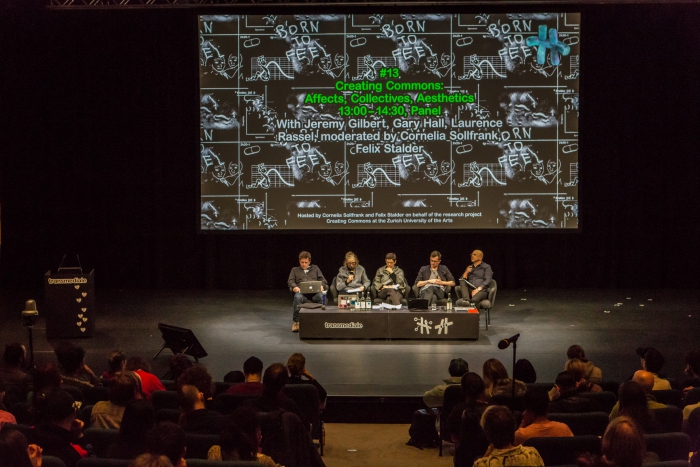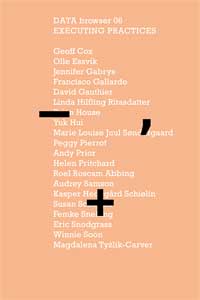Cities of InfraRed
 Tuesday, February 5, 2019 at 6:15PM
Tuesday, February 5, 2019 at 6:15PM
-----
In my presentation for the Creating Commons: Affects, Collectives, Aesthetics panel at Transmediale 2019 (see above), I made the point that the Left has been conspicuously bad at turning their representations into the kind of actions that motivate people, in the mainstream of society especially, to constitute themselves as a group around issues such as the commons. (Even taking #MeToo and BlackLivesMatter into account, there’s been no progressive counterpart to the Right’s transformation of the political landscape, achieved through the use of slogans such as ‘Take back control’ and ‘Make America great again’ to create chains of equivalence across different disaffected social groups based on collective forms of identification.) I then proceeded to talk about how a number of colleagues and I have nevertheless been working on mobilizing some of the Left’s affective-emotional themes - encapsulated by words such as collective, cooperative and community – to develop a range of aesthetic projects for the production of free resources that are capable of acting as a political force.
At first sight it might appear that a lot of our focus has been on scaling the creation of such common resources along with the community that maintains them: from the single journal Culture Machine (1999), to the 21 journals of Open Humanities Press (2008), through the 50 plus members of the Radical Open Access Collective (2015), to The Post Office’s collective presence of all these projects and more as part of an existing formal institution (2018). In actual fact, however, it has never been our intention to simply grow or expand our activities. We prefer to non-scale them, as some of my colleagues have taken to calling it, following Anna Tsing (although we’ve been operating like this for over 20 years now). This we achieve: by developing relationships with a diversity of others in different parts of the world through collaborative co-creation and custodianship; and by allowing our work to be openly copied, shared and reiterated, free of charge.
Instead of having to rely on governments and multi-national companies for their infrastructure, our idea is to make it possible for cities to be able to take some of the ‘alternative’ resources that are provided for them by projects such as Etherbox, Tactical Tech and Memory of the World – and then build their own versions on a self-organising basis, adopting and improving those parts they want and discarding the rest. We see this non-scaling model for collectively-creating a range of municipal institutions (libraries, museums, archives) and the associated technology and tools, as having the potential to provide a more socially just and environmentally sustainable way to run cities in the future.
The use of a CopyFarLeft PPL license, for example, would mean those who live in a city could be compensated for the labour they put into creating and maintaining its infrastructure and institutions by applying it to this mutually-owned and shared information and data commons. At the same time, those businesses that are not part of the city’s commons but who nevertheless wish to exploit its information and data for reasons of privatisation would be prohibited from doing so by the terms of the license - in effect creatively disrupting for-profit companies such as Uber and Deliveroo.
Thanks to its ability to create a more profound affective-emotional community experience, certainly than the pseudo community ethos of Airbnb and co, it's not inconceivable that such a commons-based approach could gain enough of an advantage over its public and private rivals to attract people in sufficiently large numbers to make developing into a large-scale political force a real possibility. It would therefore provide a means of reclaiming the idea of community from the forces of reactionary nationalist populism, such as those associated with Boris Johnson and Nigel Farage in the U.K. and Donald Trump in the U.S. After all, wasn’t it a sense of not belonging - indeed of being actively excluded and forgotten - that led those who feel they have been left behind by neoliberal globalisation to vote for Brexit and Trump? We thus see this commons-flavoured version of the ‘Preston Model’ for community building as one means by which the struggle for a left populism and construction of a progressive ‘people’ can be fought and won.
As for my title, ‘InfraRed’, well, infra is of course taken from infrastructure, while red links our approach to the politics of the Left. But red also serves to distinguish the above described vision for the future of cities from the blue of most visual representations of the so-called smart city.










